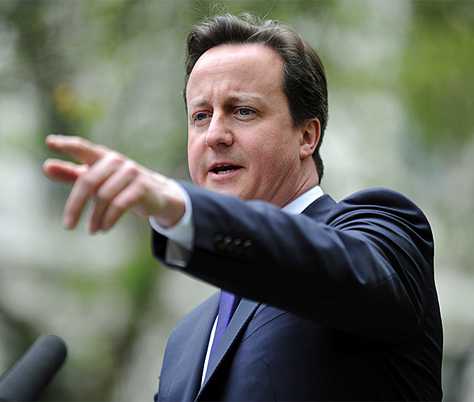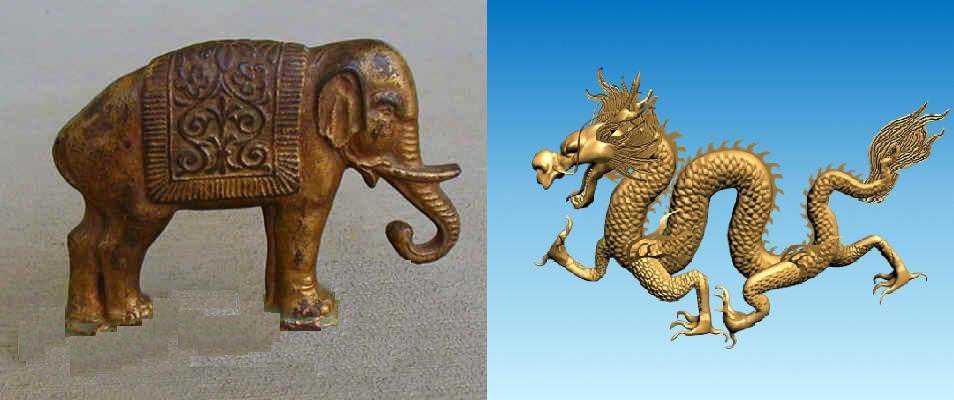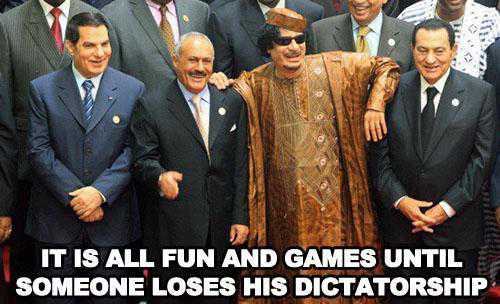
Prime Minister David Cameron’s statement to the House of Commons on the death of Usama bin Laden and counter-terrorism.
Read the statement
The death of Usama bin Laden will have important consequences for the security of our people at home and abroad and for our foreign policy, including our partnership with Pakistan, our military action in Afghanistan and the wider fight against terrorism across the world.
Last night I chaired a meeting of COBR to begin to address some of these issues.
The National Security Council has met this morning.
And I wanted to come to the House this afternoon, to take the first opportunity to address these consequences directly and answer Hon Members’ questions.
Mr Speaker, at 3am yesterday I received a call from President Obama. He informed me that US Special Forces had successfully mounted a targeted operation against a compound in Abbottabad, in Pakistan.
Usama bin Laden had been killed, along with four others: bin Laden’s son, two others linked to him, and a female member of his family entourage. There was a ferocious firefight, and a US helicopter had to be destroyed but there was no loss of American life.
I am sure the whole House will join me in congratulating President Obama and praising the courage and skill of the American Special Forces who carried out this operation.
It is a strike at the heart of international terrorism, and a great achievement for America and for all who have joined in the long struggle to defeat Al Qaeda.
We should remember today in particular the brave British servicemen and women who have given their lives in the fight against terrorism across the world.
And we should pay tribute especially to those British forces who have played their part over the last decade in the hunt for bin Laden.
He was the man who was responsible for 9/11 – which was not only an horrific killing of Americans, but remains to this day, the largest loss of British life in any terrorist attack.
A man who inspired further atrocities including in Bali, Madrid, Istanbul and of course, here in London on 7/7.
…and, let us remember, a man who posed as a leader of Muslims but was actually a mass murderer of Muslims all over the world. Indeed he killed more Muslims than people of any other faith.
Mr Speaker, nothing will bring back the loved ones who have been lost and of course no punishment at our disposal can remotely fit the many appalling crimes for which he was responsible.
But I hope that at least for the victims’ families there is now a sense of justice being served, as a long dark chapter in their lives is finally closed.
As the head of a family group for United Airlines Flight 93, put it – we are “raised, obviously, never to hope for someone’s death” but we are “willing to make an exception in this case … He was evil personified, and our world is a better place without him.”
Mr Speaker, Britain was with America from the first day of the struggle to defeat Al Qaeda. Our resolve today is as strong as it was then. There can be no impunity and no safe-refuge for those who kill in the name of this poisonous ideology.
Security
Mr Speaker, our first focus must be our own security.
While bin Laden is gone, the threat of Al Qaeda remains.
Clearly there is a risk that Al Qaeda and its affiliates in places like Yemen and the Mahgreb will want to demonstrate they are able to operate effectively.
And, of course, there is always the risk of a radicalised individual acting alone, a so-called lone-wolf attack.
So we must be more vigilant than ever – and we must maintain that vigilance for some time to come.
The terrorist threat level in the UK is already at Severe – which is as high as it can go without intelligence of a specific threat.
We will keep that threat level under review – working closely with the intelligence agencies and the police.
In terms of people travelling overseas, we have updated our advice and encourage British nationals to monitor the media carefully for local reactions, remain vigilant, exercise caution in public places and avoid demonstrations.
And we have ordered our embassies across the world to review their security.
Pakistan
Mr Speaker, let me turn next to Pakistan.
The fact that bin Laden was living in a large house in a populated area suggests that he must have had a support network in Pakistan.
We don’t currently know the extent of that network, so it is right that we ask searching questions about it. And we will.
But let’s start with what we do know.
Pakistan has suffered more from terrorism than any other country in the world.
As President Zardari and Prime Minister Gilani said to me when I spoke to them yesterday, as many as 30,000 innocent civilians have been killed. And more Pakistani soldiers and security forces have died fighting extremism than international forces killed in Afghanistan.
Usama Bin Laden was an enemy of Pakistan. He had declared war against the Pakistani people. And he had ordered attacks against them.
President Obama said in his statement: “counterterrorism cooperation with Pakistan helped lead us to bin Laden and the compound where he was hiding.”
Continued co-operation will be just as important in the days ahead.
I believe it is in Britain’s national interest to recognise that we share the same struggle against terrorism.
That’s why we will continue to work with our Pakistani counterparts on intelligence gathering, tracing plots and taking action to stop them.
It’s why we will continue to honour our aid promises – including our support for education as a critical way of helping the next generation of Pakistanis to turn their back on extremism and look forward to a brighter and more prosperous future.
But above all, it’s why we were one of the founder members of the Friends of Democratic Pakistan. Because it is by working with the democrats in Pakistan that we can make sure the whole country shares the same determination to fight terror.
Afghanistan
Mr Speaker, I also spoke yesterday to President Karzai in Afghanistan.
We both agreed that the death of bin Laden provides a new opportunity for Afghanistan and Pakistan to work together to achieve stability on both sides of the border.
Our strategy towards Afghanistan is straightforward and has not changed.
We want an Afghanistan capable of looking after its own security without the help of foreign forces.
We should take this opportunity to send a clear message to the Taleban: now is the time for them to separate themselves from Al Qaeda and participate in a peaceful political process.
Mr Speaker, the myth of Bin Laden was one of a freedom fighter, living in austerity and risking his life for the cause as he moved around in the hills and mountainous caverns of the tribal areas.
The reality of Bin Laden was very different: a man who encouraged others to make the ultimate sacrifice while he himself hid in the comfort of a large, expensive villa in Pakistan, experiencing none of the hardship he expected his supporters to endure.
Libya
Mr Speaker, finally let me briefly update the House on Libya.
In recent weeks we have stepped up our air campaign to protect the civilian population.
Every element of Qadhafi’s war machine has been degraded.
Over the last few days alone, NATO aircraft have struck 35 targets including tanks and armoured personnel carriers, as well as bunkers and ammunition storage facilities.
We have also made strikes against his command and control centres which direct his operations against civilians.
Over the weekend there were reports that in one of those strikes Colonel Qadhafi’s son, Saif al-Arab Qadhafi, was killed.
All the targets chosen were clearly within the boundaries set by UN Resolutions 1970 and 1973.
These Resolutions permit all necessary measures to protect civilian life – including attacks on command and control bases.
Mr Speaker, this weekend also saw attacks on the British and Italian embassies.
We utterly deplore this.
The Qadhafi regime is in clear beach of the Vienna convention to protect diplomatic missions. We hold them fully to account. And we have already expelled the Libyan Ambassador from London.
The British embassy was looted as well as destroyed.
The World War Two Memorial was desecrated.
And the UN have felt obliged to pull their people out for fear of attack.
Qadhafi made much of his call for a ceasefire.
But at the very moment Qadhafi claimed he wanted to talk, he had in fact been laying mines in Misurata harbour to stop humanitarian aid getting in and continuing his attacks on civilians, including attacks across the border in neighbouring Tunisia.
Mr Speaker, we must continue to enforce the UN resolutions fully until such a time as they are completely complied with.
And that means continuing the NATO mission until there is an end to all attacks on – and threats to – civilians.
Conclusion
Mr Speaker, bin Laden and Qadhafi were said to have hated each other. But there was a common thread running between them.
They both feared the idea that democracy and civil rights could take hold in the Arab world.
While we should continue to degrade, dismantle and defeat the terrorist networks a big part of the long term answer is the success of democracy in the Middle East and the conclusion of the Arab-Israeli peace process.
For twenty years, bin Laden claimed that the future of the Muslim world would be his.
But what Libya has shown – as Egypt and Tunisia before it – is that people are rejecting everything that bin Laden stood for.
Instead of replacing dictatorship with his extremist totalitarianism, they are choosing democracy.
Ten years on from the terrible tragedy of 9/11, with the end of bin Laden and the democratic awakening across the Arab world, we must seize this unique opportunity to deliver a decisive break with the forces of Al Qaeda and its poisonous ideology which has caused so much suffering for so many years.
And I commend this statement to the House.
The Prime Ministers Office
Number 10






